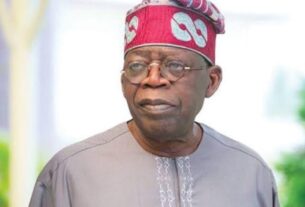Have you ever read or listened to the lyrics of the French National Anthem popularly known as La Marseillaise? Couched in crude but blunt language, it weaves savage words into bellicose lyrics and bellicose lyrics into the most jingoistic chants of war. Laced in admonition, it is an anthem that inspires in very plain language, courage, determination, resistance, gallantry, bloodbath and freedom. The crudity of some sentences in the anthem like “that their impure blood should water our fields” and “let an impure blood water our furrows” portend a barbarity that could send shivers down the spine of the most valiant warrior.
Yet, written in 1792 by Claude Joseph Rouget to inspire and incite a bloody revolution, it has survived and existed peacefully with only an intermission during the reign of Napoleon Bonaparte, Louis XVIII and Charles X. These rulers abolished the anthem for the fear that it might reignite revolutionary passion and sound the death knell of their dictatorial rule. In my very humble opinion, I think the French National Anthem in spite of its crudity and coarseness, has endured the test of time due to the timelessness of its very core message, which is a stern warning to aspiring or budding dictators. At every rendition of it, with its intense impression, it unarguably reminds everyone of the 1787 French Revolution and the brutal fate that befell the purveyors of dictatorship. With a collective focus of French citizens on the future of their country and things that matter to progress and development, France has since risen from the ashes of the 1787 revolution to become a global superpower.
Unlike the French, Nigerians achieved freedom after a non-violent struggle involving intense negotiations with the British colonial masters. At the colonial masters’ departure in 1960, one of the legacies they left behind was a national anthem that acknowledged our religious, cultural, economic, and political diversities. An anthem that imbued a deep sense of patriotism and chauvinism. Recall that the first national anthem of Nigeria was written by a British lady, Lillian Jean Williams in 1959 and was titled “Nigeria We Hail Thee”. The anthem’s first stanza emphasizes our need to promote unity to harness our diversity. The second stanza stressed the importance of passing the legacy of a nation founded on truth and justice to posterity. In contrast, the third and last stanzas showcased our spirituality and an uncommon faith in a supreme deity. It was a supplication that underpins the building of “a nation where no man is oppressed”. One remarkable thing about the last stanza of the first Nigerian national anthem is that it ostensibly nuanced the philosophy of the French’s ‘La Marseillaise’ by denouncing oppression. Apart from the periods of the first military coup and the Nigerian civil war, one could easily argue that the best era of Nigeria’s prosperity and national progress was when the anthem titled “ Nigeria We Hail Thee” first lasted. It was a golden era whose memory always triggers a gale of nostalgia in the people of that generation. Children sang it during school’s morning assemblies with food-filled stomachs and in an ambience that radiated the hope of a brighter future. Parents lived with their families and neighbours in relative peace and tranquillity. During functions of national significance and international sports events, Nigerians at home and in the diaspora joined our sports ambassadors to sing the national anthem with love and passion. It was a period when our country was viewed globally as the pride of the black world.
Out of the blue, sometime in 1978, General Olusegun Obasanjo, the military ruler of Nigeria rested our first national anthem and replaced it with a new one titled “Arise O Compatriots”. The replacement national anthem to all appearances was part of the leadership’s effort to do away with the vestiges of colonialism and embrace our creativity and originality. Interestingly, some eminent scholars specifically took swipes at the anthem’s author’s choice of words like “native” and “tribe”, words they deem to be derogatory and suggestive of “primitivity”. But indeed, if we strip ourselves of chauvinistic sentiments and critically examine our twenty-first century’s existence as a nation, there is nothing about us to indicate that we have changed a lot as people since the time the anthem was first written. Our attitude and behaviours toward ourselves still point to a people polarized by retrogressive primordial factors like tribe, ethnicity, language, and religion. In the same vein, “Arise O Compatriot” as good and original as it might appear, would not, and did not evoke more love and passion for the country than “Nigeria We Hail Thee”. In truth, if a country’s level of economic prosperity is a yardstick for measuring the performance of its national anthem, “Arise O Compatriots” has failed Nigeria woefully. In the same vein, if one observes closely the trajectory of Nigeria’s economic growth and development in the post-colonial period, one will notice that the period of our second anthem coincided with a downward trend in the economy. Forty-eight years after “Arise O Compatriots” served us as the national anthem, and in the thick of one of the worst economic crises Nigeria has ever experienced in modern history, Mr. Bola Ahmed Tinubu, Nigeria’s current President, in collaboration with the National Assembly decided to bid it farewell by reverting to the old anthem General Obasanjo dumped for being a vestige of colonialism. In record time, the ‘reversion’ bill hurriedly passed the legislative process and received the presidential assent. The main reason adduced by President Tinubu to explain the country’s reversion to the old national anthem is that it symbolizes Nigeria’s diversity.
At this juncture, we as Nigerians must ask ourselves some important questions. Firstly, what gives the government the impression that where ‘Arise O Compatriot’ failed, ‘Nigeria We Hail Thee’ will succeed’? Secondly, is there any correlation between a country’s development and its national anthem, especially in the absence of a political will by its government and citizens? The answer to the second question in my opinion is ‘NO’. I concur with the opinion and explanation that the national anthem is only a patriotic song or musical composition that is either recognized officially by a nation’s government and constitution or is accepted as such by convention through popular use. It reflects the history, struggles, and traditions of a nation and its people and serves as an expression of national identity.’ The purpose of singing the national anthem is to express pride in one’s country. Singing the anthem brings the people together and helps to show that citizens respect and support the Armed Forces that protect the nation’s territorial integrity. It helps to instill patriotism and nationalism in citizens during a time of need. But for a President and a National assembly that are already in the eye of the storm due to a battered economy characterized by inflation, unemployment, insecurity, and hunger, adopting a former national anthem as new is not only a waste of legislative time and resources but also a source of national distraction from the real problems facing the country. Indeed, it is an exercise that trivializes governance as well as questions the administration’s rationality amidst a terrible economic situation. No matter how lyrical or original an anthem might be in evoking passion, love, and patriotic feelings, the bane of Nigerian leadership which is usually evident in the lack of political will, would deprive it of its desired effect. The national anthem controversy has revealed a government wandering off issues bordering on existential threats to attend to frivolous ones with little or no consequence. Finally, our leaders’ questionable prioritization of deliverables at a time like this, reinforces the negative perception of many observers about Nigerian leadership.






